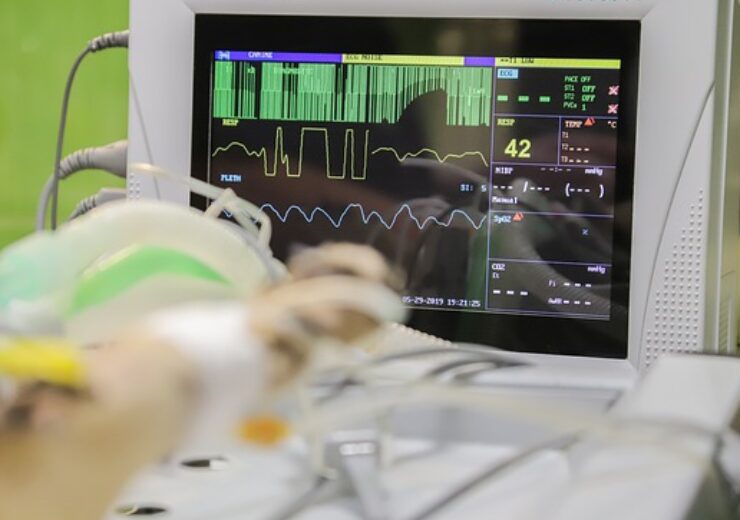Nellcor pulse oximetry technology showed a statistically significant difference in time to deliver stable oxygen saturation value and heart rate

Medtronic announces superiority of its Nellcor system. (Credit: Mirko Sajkov from Pixabay.)
Medtronic announced that its Nellcor Bedside SpO2 Patient Monitoring System has outperformed Masimo Radical-7 Pulse CO-Oximeter in an independent observational study.
The study compared the efficacy and reliability of the two pulse oximeters, set at the highest sensitivity, after the delivery of 60 term newborns through Caesarian section.
Also, the study compared the heart rate measurement of both the systems, compared with standard electrocardiography (ECG) monitoring.
Pulse oximetry is a simple, non-invasive bedside test that accurately detects the percentage of blood saturated with oxygen and measures the heart rate.
Monitoring oxygenation and heart rate of newborns using a pulse oximeter would help physicians minimise the risk of either too low or too high blood oxygen levels and related morbidity and mortality.
Medtronic patient monitoring division president Frank Chan said: “A newborn’s heart rate is a key component of physician assessment for resuscitation, and helps to identify not only those in need of intervention but also their response to treatment.
“Those who do not achieve a heart rate of 100 beats per minute by five minutes of life are at an increased risk of death.
“This study demonstrates that physicians can rely on Nellcor pulse oximetry technology to post data quickly, offer consistency, perform well with these patients, and meet the requirements of the neonatal resuscitation program guidelines, which are especially important in the delivery room.”
In the study, Nellcor pulse oximeter has obtained a stable signal from all 60 newborns, while the Masimo pulse oximeter from only 55 newborns.
To obtain the stable signal, the Nellcor pulse oximeter required a mean time of 15 seconds, compared to 27 seconds with the Masimo pulse oximeter.
Medtronic said that the average difference of 12 seconds between the monitors was statistically significant.
The study was conducted at the Rabin Medical Center, Petach Tikvah, Israel, a university-affiliated tertiary care centre with around 9,000 births per annum.
According to the study results, Nellcor showed a statistically significant difference in the time needed to deliver a stable signal between devices which could potentially impact the provision of care during neonatal resuscitation.
The study observed a difference of 12 beats per minute (BPM) between the Masimo monitor and the reference standard ECG in 18 of 51 newborns, along with false bradycardia.
Nellcor pulse oximetry monitor detected the heart rate close to that of the ECG, with no recording of false bradycardia and no reading, compared with the ECG.
Medtronic said that the findings are recorded as per the neonatal resuscitation programme (NRP) guidelines.
